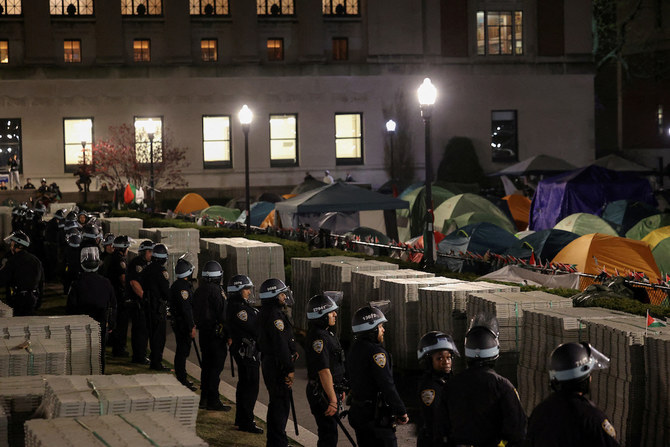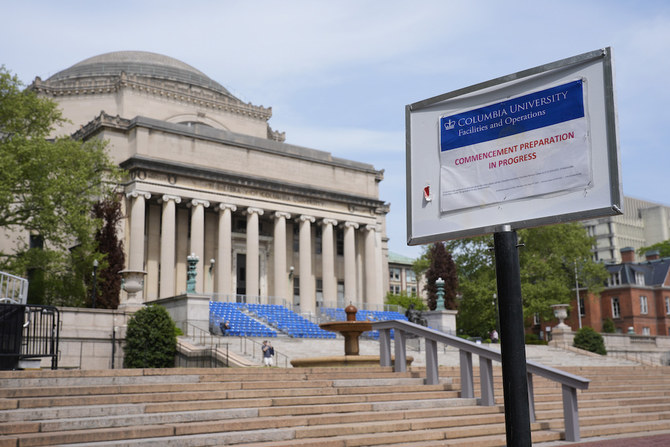NEW YORK: New York’s prestigious Columbia University has announced that it is canceling its main graduation ceremony, scheduled for next week, because of ongoing pro-Palestinian protests.
The announcement on Monday is the latest development in a movement that began nearly three weeks ago at Columbia and has swept college campuses nationwide.
The graduation ceremony had been scheduled for May 15 on the south lawn of the Manhattan campus, where protest encampments had been based before authorities dismantled them last week.
The Ivy League institution said it would “forego the university-wide ceremony” and hold a series of smaller events instead.
“We are determined to give our students the celebration they deserve, and that they want,” Columbia announced, saying “smaller-scale, school-based celebrations are most meaningful to them and their families.”
The university added: “We will focus our resources on those school ceremonies and on keeping them safe, respectful, and running smoothly. A great deal of effort is already underway to reach that goal.”
Students across the US have protested and set up tents at dozens of universities to register their opposition to the war in Gaza, while calling on President Joe Biden to do more to stop the bloodshed.
They have also demanded their institutions cease supporting companies that support Israel’s government.
Maya James, a psychology student at Columbia, told Arab News: “Seeing the university’s really insane response to student protests has brought so many people together, because I feel like most people on this campus can agree, including faculty, that students should not be penalized for expressing their First Amendment rights to protest, to petition, to do all of these things we’ve been encouraged to do for so long.”
She called on the university to give amnesty to students who had been suspended for expressing their First Amendment rights, which protect freedom of speech, the press, assembly, and the right to petition.
James also called on the university to disclose its investments because as “of right now there’s no visibility for us students to be able to know what the university is expected to do.”
She described the “vibes” at the protest sites as “absolutely remarkable,” with cultural and educational programs being offered and all kinds of activities being held.
She said the demonstrations were a continuation of Columbia’s long tradition of protest which began in the 1960s with its opposition to the involvement of the US in the Vietnam War.
James said it was “incredible” to see the solidarity for the Palestinian cause spread in campuses across the US, and people pushing to ensure “that we do indeed see a free Palestine within our lifetime and that our universities are no longer complicit in the genocide.”
Demonstrators have gathered on at least 40 US university campuses since April 17, often erecting tent camps to protest against the soaring death toll in the Gaza Strip. Nearly 2,000 people have been detained, according to the US media.
Police officers have forcibly ended several student sit-ins in recent days, including one at New York University at the request of its administrators.
Demonstrators had barricaded themselves inside Columbia, the epicenter of student protests in New York, and some complained about police brutality when officers cleared the faculty.
(With Agencies)


























